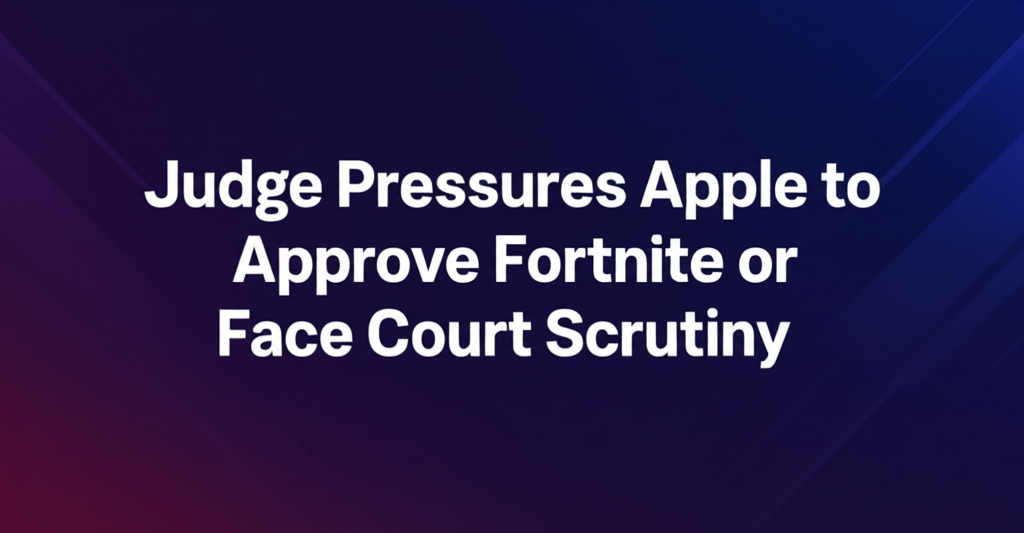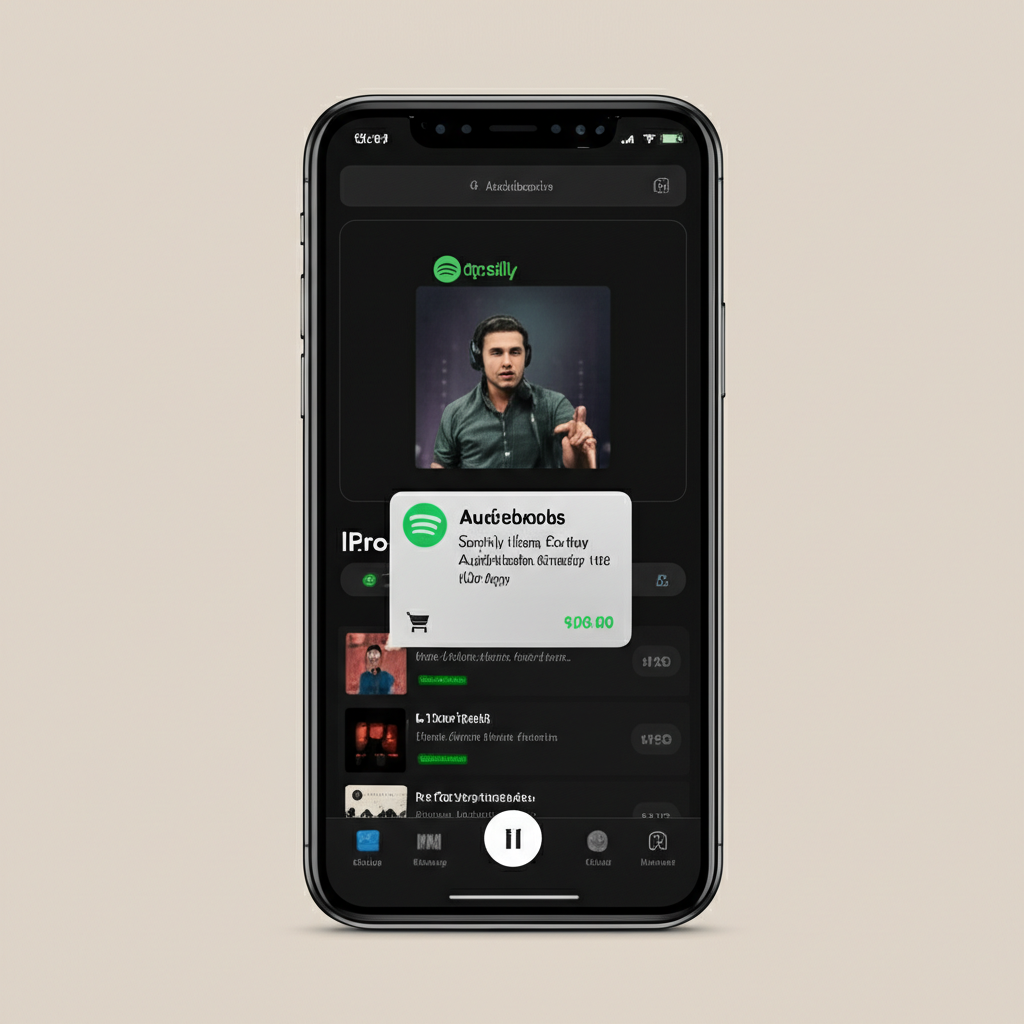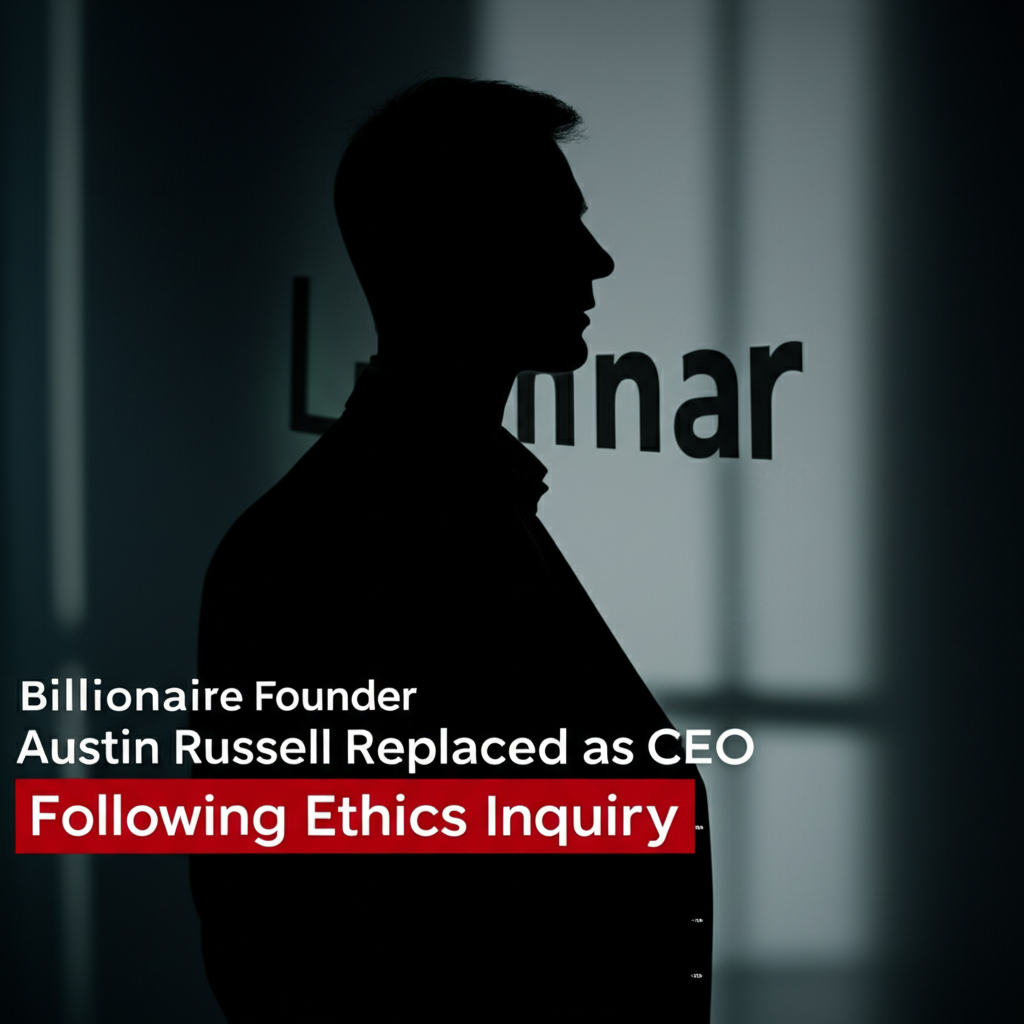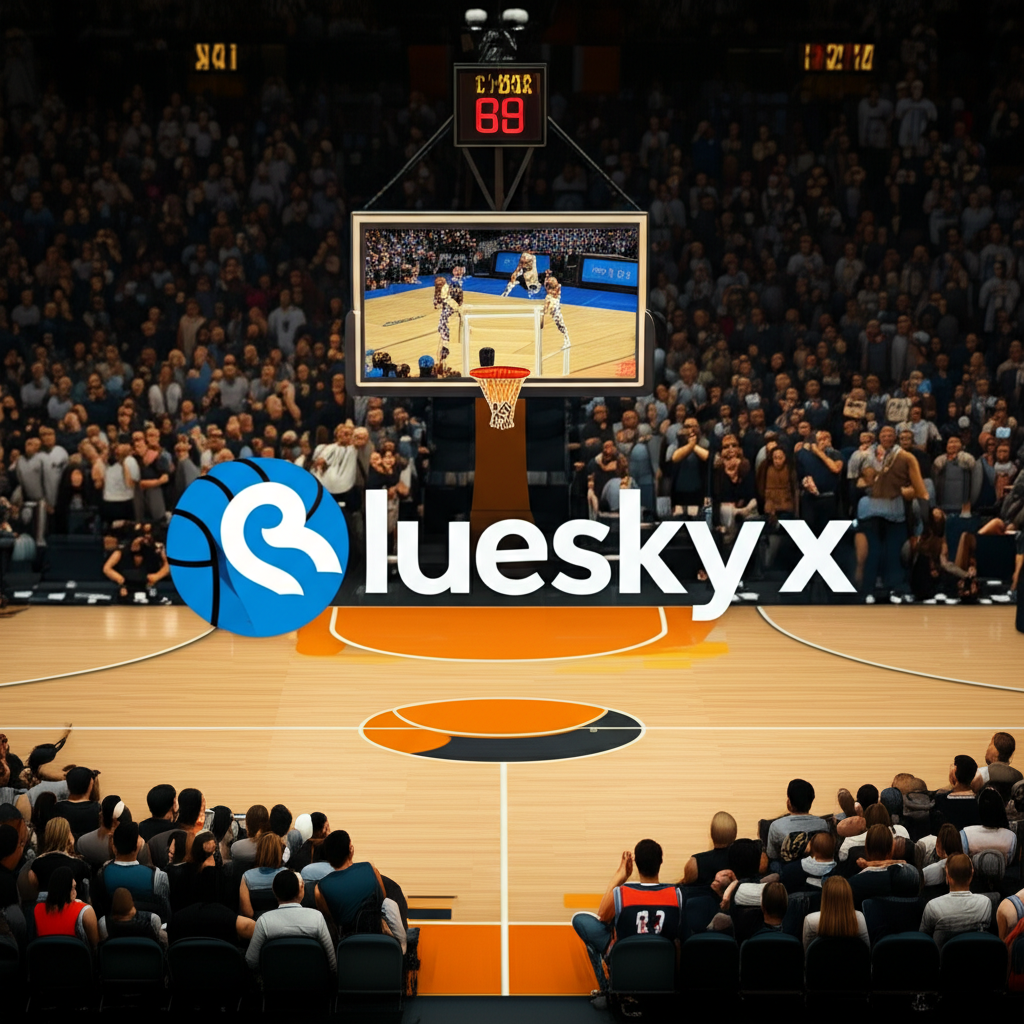The $10 Million AI Music Fraud Case: A Billion Streams, No Fans
Almost no one hits it big in music. The odds are so bad it’s criminal. But on a late spring evening in Louisville, Kentucky, Mike Smith and Jonathan Hay were having that rare golden moment when everything clicks. Smith was on guitar. Hay was fiddling with the drum machine and keyboard. Dudes were grooving. Holed up in Hay’s living room, surrounded by chordophones and production gizmos, the two musicians were hoping that their first album as a jazz duo would finally win them the attention they’d been chasing for years.
It was 2017. The men, then in their forties, were longtime collaborators and business partners—though they made an odd couple. Smith owned a string of medical clinics and wore tight shirts over his meticulously maintained muscles. He lived in a sprawling house in the suburbs of Charlotte, North Carolina, with his wife and six kids. He’d judged on a reality TV show and written a self-help book. Hay—larger, softer, comfy in sweatsuits and Crocs—lived in an apartment and was dating a stripper. He loved weed. He’d hustled as a music publicist for years; by reputation he was best known in the industry for promoting a nuclear rumor that Rihanna had hooked up with Jay-Z. He’d recently, on an impulse, had sleeves tattooed on his arms. To avoid annoying his health-nut friend, he’d sneak into his bedroom to vape.
Smith and Hay finished their album and called it Jazz. That fall, they released it on all the usual places—Spotify, Apple Music, Tidal—and as a physical album. Alas, it failed to take off. Smith and Hay weren’t total nobodies; a few songs they had coproduced for other artists years earlier had gotten some buzz. So the two men decided to retool Jazz and release an updated version, adding new songs.
Jazz (Deluxe) came out in January 2018. Right away, it shot up the Billboard chart and hit No. 1. Hay was elated. At last, real, measurable success had arrived.
Then, just as suddenly, the album disappeared from the ranking. “Nobody drops off the next week to zero,” says Hay, remembering his confusion. He called other artists to ask if they’d ever seen this before. They hadn’t. Questions piled up. If so many people had listened, why did they suddenly stop? He scanned the internet for chatter. Even a single freaking tweet would have been nice. Nada. Where were the fans? “No one’s talking about the music,” Hay realized.
Pulling up Spotify’s dashboard for artists, Hay scrutinized the analytics for the pair’s work. Listeners appeared concentrated in far-flung places like Vietnam. Things only got stranger from there. Here’s how Hay remembers it: He started receiving notices from distributors, the companies that handle the licensing of indie artists’ music. The distributors were flagging Smith and Hay’s music, from Jazz and from other projects, for streaming fraud and pulling it down. Smith told Hay it was a mistake and that Hay had messed up securing the proper rights for samples. Hay frantically tried to correct the issue, but the flagging persisted.
Hay, panicking, badgered Smith to help him figure out what was happening. Finally, Hay says, Smith offered some answers: Smith had instructed his staff at the medical clinics to stream their songs. It didn’t sound like the full story.
Then, last September, Smith turned up at the heart of another music streaming incident, this one rather epic. The FBI arrested him and charged him in the first AI streaming fraud case in the United States. The government claims that between 2017 and 2024, Smith made over $10 million in royalties by using bot armies to continuously play AI-generated tracks on streaming platforms. Smith pleaded not guilty to all charges. (Through his lawyer, Smith declined to be interviewed, so this is very much Hay’s side of the story, corroborated by numerous interviews with people who worked with the two men.)
An Unlikely Partnership: Ambition, Hustle, and a Checkbook
When Hay found out about the indictment, he marveled at the idea of his former collaborator managing to get richer than nearly all working musicians without being a household name. “He had a billion streams,” Hay claims, “and no fans.” This stark contrast – immense digital activity versus a complete lack of genuine audience engagement – became the defining characteristic of the alleged fraud and a potent symbol of the distortions within the modern music industry.
The story of Mike Smith and Jonathan Hay’s collaboration began in 2013. Hay was working as a publicist, supplementing his income by selling online PR consulting sessions to aspiring musicians for $250 a pop. Smith, a successful businessman with a chain of medical clinics, stumbled upon these sessions and booked an unusually large block of time – 20 hours. “He did something really grandiose,” Hay recalls. “He booked like 20 hours.” This initial interaction immediately signaled Smith's willingness to invest heavily in his musical ambitions.
Smith flew in for his tutorial, and true to his controlling nature, picked the meeting spot: a sports bar in a strip mall, despite Hay being the local. Hay understood that Smith, having made his fortune in healthcare, was now seeking fame and was prepared to spend whatever was necessary to achieve it. By the end of that first consultation, their dynamic was set: Smith, the ambitious financier yearning for stardom, and Hay, the seasoned publicist and hustler, eager to be the starmaker.
They quickly formed a partnership and launched a label, SMH Records. The initial strategy wasn't for Smith to be the primary artist, but rather for them to establish themselves as producers and industry players, essentially buying their way in. “Spared no expenses on the budget,” confirms B. Stille of the rap group Nappy Roots, who worked with SMH Records. One of their early successes was co-producing a single for Nappy Roots that generated some buzz. Smith also financed and became a judge on BET’s One Shot, a reality competition scouting for rap talent. His fellow judges included hip-hop heavyweights like DJ Khaled, Twista, and T.I., making Smith, a relatively unknown producer with a deep pocket, something of an anomaly on the panel.
Around the time One Shot was in production, Hay began to harbor suspicions about the source of Smith's seemingly endless funding. He and another SMH employee started digging into Smith's financial background. In February 2015, Hay compiled his findings into a 111-page document accusing Smith of financial mismanagement and sent it to their business associates. Hay saw this as his “Jerry Maguire moment,” a dramatic stand he believed would expose Smith and rally others to his side. He was confident that at least one person would recognize the red flags he was waving.
However, Hay's dramatic reveal didn't go as planned. Instead of siding with Hay, their associates largely remained loyal to Smith. “Everybody stayed with Mike,” Hay recounts, expressing his feeling of being “really stupid.” People in their professional circle seemed to trust Smith implicitly. Rapper Kxng Crooked, who judged alongside Smith on One Shot, described him as wholesome, even visiting his home and playing with his children. Goldy Locks, a musician signed to SMH Records, stated she had “a completely positive experience” working with Smith, claiming he was the only label head who had ever truly taken care of his artists. Smith's ability to maintain trust and relationships, even in the face of Hay's accusations, painted a picture of a man skilled at presenting a respectable facade.
One Shot aired in 2016, lasting only one season, but it represented a peak in Smith's public-facing music career. For Hay, however, the period was marked by personal turmoil. In 2017, two men broke into his apartment and held him and his daughter at gunpoint. Smith visited Hay afterward to check on him, a gesture Hay appreciated, which temporarily softened his anger towards his partner. This fragile truce, however, was short-lived, dissolving once their jazz album was released and Hay's suspicions about their streaming numbers resurfaced with renewed intensity.
The Pivot to AI and the Rise of the Bot Army
The failure of the initial Jazz album and the subsequent strange performance of Jazz (Deluxe) seemed to mark a turning point. While Hay was grappling with the lack of genuine listeners and the mysterious flagging by distributors, Smith was allegedly exploring a new, more scalable avenue for generating streams and, crucially, royalties: artificial intelligence.
In the late 2010s, Smith connected with Alex Mitchell, the CEO of an AI song generator startup called Boomy. At the time, AI music generation was a nascent technology, far from the mainstream attention it receives today. Users could “create” music by inputting simple prompts or selecting styles, with the AI generating tracks based on its training data. Smith, it appears, recognized the potential of this technology earlier than many, seeing it not just as a creative tool, but as a potential engine for mass-producing content.
According to the government’s indictment, which describes Mitchell without naming him, the “Chief Executive Officer of an AI music company” began providing Smith with “thousands of songs each week” starting around 2018. An excerpt from an email cited in the indictment reveals the CEO's perspective on the output: “Keep in mind what we’re doing musically here ...,” the CEO wrote. “This is not ‘music,’ it’s ‘instant music’ ;).” This quote underscores the nature of the content – algorithmically generated tracks designed for volume, not artistic merit or human connection.
Smith allegedly took these thousands of AI-generated tracks and assigned them to a multitude of fake artists. The names of these artists and songs, as detailed in the indictment, were often nonsensical, seemingly scraped from dictionaries or generated randomly. Song titles like “Zygophyceae,” “Zygophyllaceae,” and “Zygopteraceae” paired with artist names such as “Calm Force,” “Calm Knuckles,” “Calms Scorching,” and “Calorie Event” created a vast, impersonal catalog designed purely for mechanical consumption.
The core of the alleged scheme involved uploading this massive library of AI music onto various streaming platforms. To generate royalties, these tracks needed to be played repeatedly. The indictment claims Smith, with the help of contractors, created thousands of fake accounts on these platforms. He then allegedly purchased “small pieces of computer code” – essentially bot software – that allowed him to “continuously” play the AI music on these accounts. This created a custom bot army, tirelessly streaming the algorithmically generated tracks around the clock, mimicking listener activity on an industrial scale.
Each stream, no matter how artificial, theoretically triggered a micro-payment in royalties from the streaming services. By generating millions upon millions of these fake streams, Smith was allegedly able to accumulate substantial royalty payments. If the allegations are true, Smith wasn't just dabbling in AI music; he was leveraging it as a tool for large-scale financial manipulation, cementing his status as a master purveyor of what some might call “AI slop.” This phenomenon is not unique to music; it mirrors the proliferation of algorithmically generated content across the internet, from robo-books on Amazon to AI-spun articles on content farms, all driven by individuals seeking to game the digital economy for quick profit.
Hay's Whistleblowing Attempts and Industry Inertia
While Smith was allegedly building his AI streaming empire, Jonathan Hay remained in the dark about the specifics of the AI component, but his suspicions about their streaming numbers intensified. The bizarre analytics – listeners concentrated in unexpected locations, the sudden disappearance from charts, the complete lack of fan engagement – pointed to something fundamentally unnatural about their success.
The fighting between Smith and Hay escalated. In December 2019, Hay confronted Smith directly via email, accusing him: “You steal from streaming platforms,” he wrote. “These are federal crimes, bro.” Smith's response, according to Hay, was to simply resend their legal agreement, a move Hay interpreted as a dismissal of his concerns and a potential legal threat.
Hay claims Smith also began cutting him out of deals and withholding income, pushing Hay to a breaking point. Feeling increasingly desperate and convinced of Smith's fraudulent activities, Hay decided to go public with his suspicions. He dashed off another lengthy document outlining his concerns and sent it to their business associates, much like his failed attempt years earlier. This time, he also reached out to employees at Billboard and other contacts within their professional network, detailing his suspicions about streaming manipulation. Hay says he was ready to sever ties completely and felt compelled to report what he believed was criminal activity. He claims he went to the local police and even the FBI, stating, “I blew the whistle as loud as I could.”
Yet, despite Hay's efforts, nothing seemed to happen immediately. A Billboard employee eventually texted Hay, informing him that the company had decided not to pursue an investigation into his claims. (Billboard declined to comment on this specific incident, though a spokesperson for Penske Media Corporation, which owns Billboard, noted that they will remove inaccurate records if notified in a timely manner. As of the article's publication, Billboard records related to Smith and Hay still stood.) The lack of action left Hay feeling isolated and questioning his own sanity. Embarrassed, he even told the Billboard team that he had gone off his medication, a reflection of the psychological toll his struggle took.
Hay's experience highlights a significant challenge in combating streaming fraud: the difficulty of getting platforms and industry bodies to take action, especially when the alleged perpetrator maintains a facade of legitimacy and has established relationships. While platforms have terms of service prohibiting artificial streaming, proving intent and scale, and then taking decisive action, can be complex and time-consuming. Hay's early warnings, though seemingly accurate in retrospect, did not immediately trigger the widespread investigations he hoped for.
Legal Troubles Mount and the Walls Close In
While Hay was struggling to be heard, Mike Smith was facing legal challenges on another front. He was navigating a lawsuit filed by staffers at his medical offices. The lawsuit alleged that Smith's clinics had engaged in Medicaid and Medicare fraud, claiming that Smith was improperly moving money from the clinics into SMH Records. This mirrored Hay's earlier suspicions about the source of Smith's funding for his music ventures. Smith and his codefendants ultimately reached a settlement in 2020, agreeing to pay $900,000. This settlement, while not an admission of guilt, added another layer of legal and financial complexity to Smith's life and lent some credence to the idea that his music funding might have originated from questionable sources.
Despite the settlement, by 2022, Smith appeared to be back in the music world, seemingly undeterred. He produced a song featuring prominent artists Snoop Dogg and Billy Ray Cyrus, signaling his continued ability to attract notable collaborators. He was also reportedly lining up a slate of ambitious projects, including a horror movie with RZA and an animated series where a cartoon version of himself would travel to the afterlife, set to music by Snoop Dogg and RZA. (Neither Snoop Dogg nor RZA responded to requests for comment for the original article.) These projects suggested Smith was still actively pursuing mainstream success and leveraging his connections.
However, the unpredictable nature of the entertainment business, combined with the potential consequences of his alleged activities, meant Smith's fortunes could turn quickly. By 2023, something seemed to shift. Smith reportedly went silent on Instagram, a platform he had previously used to promote his work and lifestyle. The horror movie was released without significant fanfare. According to a timeline included in the criminal indictment, Smith was spending at least some of this period attempting to convince various groups within the streaming industry that his activities were legitimate, suggesting that scrutiny was increasing.
Then, in the spring of 2023, a major blow landed. The Mechanical Licensing Collective (MLC), a nonprofit organization responsible for collecting and distributing mechanical royalties for streaming services in the US, confronted Smith about potential fraud and subsequently halted his payments. The MLC's action was a critical development, effectively shutting off a crucial source of income derived from the alleged fraudulent streams and signaling that at least one major industry body was taking his activities seriously.
The culmination of these events came on September 4, 2024. Federal agents arrived at Smith’s large Colonial Revival–style brick home. He was handcuffed and escorted to a navy sprinter van, past his three-car garage, as bewildered neighbors watched. The arrest marked the public unveiling of the federal investigation and charges, bringing the years of alleged activity and Hay's persistent suspicions into the national spotlight.
The Indictment and Reactions from the Orbit
For Jonathan Hay, the FBI arrest of Mike Smith was a moment of profound vindication. After years of raising alarms, being dismissed, and questioning his own judgment, the federal indictment confirmed that his suspicions were not unfounded. In the indictment, Hay fits the description of an unnamed “Co-Conspirator 2,” but is explicitly stated as not being charged with a crime. The government's narrative positions Hay as something of a patsy, someone whose legitimate work with Smith was initially used to “fraudulently generate royalty payments” before Smith allegedly pivoted entirely to AI-generated content and bots.
The news of Smith's arrest sent ripples through the music industry and among those who had worked with him. Many expressed surprise. Music promoter Bram Bessoff, who is registered as a cowriter on hundreds of Smith’s AI songs, told WIRED he was in “total shock” and stated he was cooperating with authorities. (While Bessoff is not named or charged in the indictment, “Co-Conspirator 4” is described as a music promoter, suggesting a potential link.)
Boomy CEO Alex Mitchell, who also appears as a registered cowriter on numerous AI tracks alongside Smith and Bessoff, declined to answer questions directly. A spokesperson for Boomy, Phoebe Myers, issued a statement asserting that neither Mitchell nor Boomy “had any knowledge or involvement in Smith’s alleged criminal conduct,” nor had they “engaged in bot streaming or knew of any bot streaming by Smith.” Myers also added that Mitchell did not have any relationship with Smith’s music publishing company. These statements from Boomy and Mitchell aim to distance the AI music generation company from Smith's alleged fraudulent activities, emphasizing that while they provided the tool, they were unaware of its alleged misuse for bot streaming.
The indictment itself provides glimpses into the alleged operation and Smith's mindset. It includes an excerpt from an email Smith allegedly sent to his co-conspirators (likely fitting the descriptions of Mitchell and Bessoff), expressing jubilation over the scale of the streams and the anticipated royalties. “We are at 88 million TOTAL STREAMS so far!!!” the email read, highlighting the focus on sheer volume rather than genuine listenership.
The Mechanics of Streaming Fraud and AI's Role
Understanding the Mike Smith case requires a look at the mechanics of music streaming and the vulnerabilities within the system. Streaming platforms like Spotify, Apple Music, and others pay royalties based on complex formulas, often tied to a pro-rata model where a portion of the total revenue pool is divided among rights holders based on their share of total streams. This model, while seemingly straightforward, creates an incentive for bad actors to artificially inflate stream counts, as more streams equate to a larger slice of the revenue pie.
Technically, creating a large volume of AI-generated music and uploading it to streaming services is not inherently illegal. As Deezer, a French streaming platform, estimates, around 10 percent of daily uploads are now AI-generated. The legality often hinges on the training data used by the AI (whether copyrighted material was used without permission, as seen in lawsuits against companies like Suno and Udio) and the terms of service of the platforms themselves. Boomy, being certified by Fairly Trained, suggests its training data practices are aboveboard in terms of consent.
The alleged crime in Smith's case centers not just on the creation of AI music, but on the *method* used to generate streams: bots and fake accounts. Major streaming services explicitly prohibit the use of artificial means to inflate stream counts in their terms of service. Using bots to simulate human listening is a clear violation. While this behavior is against platform rules, prosecuting it as a federal crime, as the US government is doing in Smith's case, is a significant step.
Streaming fraud is a pervasive and costly problem for the music industry. Morgan Hayduk, co-CEO of Beatdapp, a startup specializing in detecting streaming fraud, estimates the problem costs the industry “Conservatively, it’s a billion-dollar-a-year type of problem.” While older estimates placed fraudulent streams at 1-3 percent of the total, Hayduk suggests the number is likely closer to 10 percent, with some clients seeing 17-25 percent, and occasionally even half, of streams flagged as fraudulent.
Hayduk views AI song generators as a “supercharger” for this type of fraudulent activity. They provide an almost infinite supply of unique tracks, bypassing the need for human musicians or composers. Paired with readily available bot technology, this creates a potent combination for generating artificial streams at scale. However, Hayduk also notes that Smith's alleged scheme, while large, isn't necessarily cutting-edge in terms of sophistication. “If you’re a sophisticated, organized criminal,” he says, “you would do this from the comfort of a beach in a non-extradition country.” This suggests that while Smith's case is the first major federal indictment involving AI, it may represent a relatively accessible form of the crime, potentially indicating a much larger, more sophisticated underground economy of streaming manipulation.
The question of which streaming platforms paid Smith the most remains somewhat opaque, likely because companies are reluctant to publicly admit the extent to which their fraud detection systems may have failed. Spotify, the largest player, stated that its preventative measures were effective, limiting the royalties Smith was able to generate from their platform to approximately $60,000 out of the alleged $10 million total. Apple Music, YouTube Music, and Tidal did not respond to inquiries, and Amazon declined to comment on Smith specifically. While streaming services and distributors are investing heavily in AI-powered fraud detection – essentially an AI-versus-AI arms race – some industry experts argue that the fundamental issue lies in the royalty payment structures themselves, suggesting that only a complete overhaul of how artists are paid can truly curb the problem.
The “Robin Hood” or the Grifter? Navigating the Ethics of the Digital Music Age
In some corners of the music world, Mike Smith's alleged actions don't elicit outright condemnation. The music industry has a long history of opaque financial practices, with artists often feeling exploited by labels and platforms. Streaming services, in particular, have faced criticism for the low per-stream royalty rates paid to artists, especially those without massive listenership. In this context, some might view Smith not as a villain, but as a figure who exploited an already exploitative system. Goldy Locks, Smith's former client who had a positive experience with him, suggested that some people might even see him as a modern-day Robin Hood, taking from the wealthy platforms and distributing (to himself and his alleged co-conspirators) what artists feel is rightfully theirs.
Others see Smith as simply a product of a “grift-addled environment.” The line between legitimate promotion and artificial inflation has always been blurry in the music business. From the historical practice of radio payola (paying for airplay) to streaming services allegedly inserting bulk-produced stock music into popular playlists, the industry has a history of manipulating audience perception and engagement. Even in the 19th century, Parisian opera houses employed “claqueurs” – paid applauders – to create the illusion of enthusiastic reception. In the digital age, bots and fake streams are simply the latest iteration of this age-old desire to manufacture success.
The Mike Smith case forces a confrontation with the nature of success and value in the era of digital streams and artificial intelligence. If music can be generated instantly by an algorithm, and streams can be generated endlessly by bots, what does a “billion streams” actually mean? Does it represent cultural impact, artistic achievement, or simply a technical exploit of a flawed payment system? The case highlights the growing disconnect between digital metrics and genuine human connection – the difference between having a billion streams and having a single dedicated fan.
Mike Smith is currently out on bail, facing serious charges. His lawyer, Noell Tin, issued a statement emphasizing Smith's identity as a “successful songwriter, musical artist, devoted husband, and father to six children,” and stated that he “looks forward to responding to the charges against him in court.” The case is being heard in the US Southern District Court of New York by Judge John Koeltl, who has presided over other significant tech-related lawsuits. If found guilty, Smith faces a potentially lengthy prison sentence, up to 60 years.
Regardless of the trial's outcome, the Mike Smith case has already earned a place in the evolving history of the music business. The government has framed him as a prime example of how the tools of the AI era can be leveraged for fraudulent purposes. The case serves as a stark reminder that while technology makes it easier than ever to create and distribute music – allowing anyone to “click a few buttons and make a song” – it also opens new avenues for manipulation and fraud. Building a fortune off audienceless, algorithmically generated ditties, as Smith is accused of doing, is a phenomenon that challenges traditional notions of artistry, success, and legitimacy in the digital age. From one perspective, it is a clear-cut crime; from another, it is a disturbing, albeit perhaps inevitable, new “art” form born from the intersection of technology, ambition, and the relentless pursuit of wealth in a system ripe for exploitation.



















